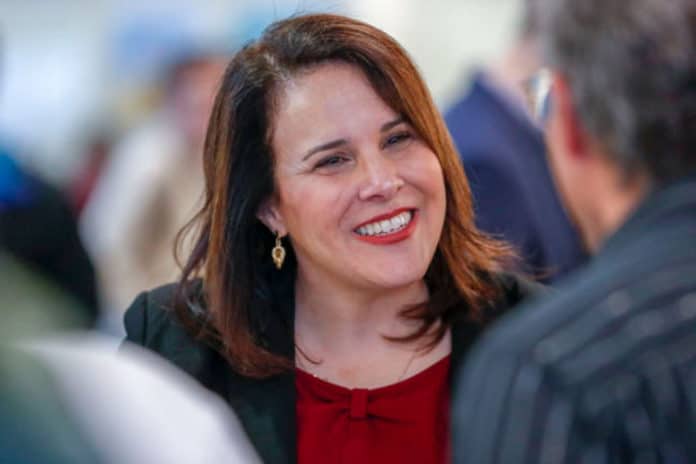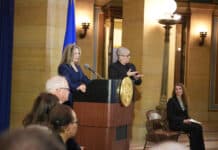You reap what you sow.
In July 2019, Joan Gabel was installed as the 17th president of the University of Minnesota. A newcomer to Minnesota, Gabel was lauded for her collaborative approach and commitment to inclusion.
Less than a year later, George Floyd died.
Before all the facts were in hand, Gabel issued a statement that set the university up for a crime wave.
Noting that students, faculty, and staff are part of every community in Minnesota, Gabel demanded accountability and justice for Floyd’s death.
Announcing a change in the university’s relationship with its law enforcement partner, she rendered a bit of her own justice.
Henceforth, the university would only collaborate with the Minneapolis Police Department (MPD) on joint patrols and investigations that would make the university safer or apprehend those who put the university community at risk.
The U would no longer contract with MPD to staff large events like football games and concerts and would no longer use special MPD services such as K-9 explosive detection units.
Her punishment didn’t satisfy certain vocal students, who unsuccessfully demanded the university sever all ties to MPD and fire University of Minnesota Police Chief Matt Clark.
Two years later, MPD is depleted and demoralized and criminals are more emboldened than ever.
Crime is up 45 percent at the university.
Students, faculty, staff, and visitors are victims of assaults, burglary and robbery, destruction of property, and motor vehicle thefts.
Parents I spoke with say everyone knows someone who has been the victim of a crime.
Mike Olson describes himself as a proud Gopher. He’s one of more than a thousand parents and alumni who are coming together, regardless of political persuasion, because they’re observing “out of control craziness” and wondering why it’s allowed to persist.
They’re frustrated by the university’s tepid response to a hot mess.
Olson sees the problem through multiple lenses: as a father, alumnus, and former Secret Service agent. When he attended the university 30 years ago, he never worried about safety and security on or near the campus.
But it’s different today. “Why wouldn’t criminals feel emboldened, especially in target-rich environments where students have money, are drinking, and have cell phones?” Olson asks.
Gabel’s May 2020 letter started a cascading effect, he says. Those sentiments, coming from the university’s highest office, contributed to the stereotyping of an entire profession and perpetuated an anti-law enforcement atmosphere on campus.
Professors, student leaders, and resident assistants are unabashed in their disdain for the law enforcement profession.
But, as vocal as some students may be, they don’t represent everyone.
For the past two years, students, parents, and alumni have been sounding an alarm about campus safety.
They’ve demanded the same accountability Gabel pushed for in 2020.
Until recently, their concerns mostly fell on deaf ears.
It took a shooting on July 8 to finally prompt a response.
Last Monday, Gabel held a listening session. Students, parents, alumni, media, police, elected officials, and administrators attended. Gabel’s May 2020 letter was made available to attendees.
Appearing by Zoom, Gabel offered prepared remarks but took no questions. After about 10 minutes, attendees were shocked to see her screen go dark, without explanation. Reportedly, she had a previous teaching commitment.
“What’s astonishing to me is the reason they brought that letter out was to say they didn’t completely disconnect from the Minneapolis police, they just did it in certain areas. The problem is it became part of the issue at the meeting,” Olson said.
With Mayor Jacob Frey in the room, Olson posed the question, “How can we as a university stereotype a group of individuals when, for decades, we’ve been teaching that you don’t stereotype an entire group of people for the conduct of a few?”
Frey stayed for the designated hour. But the police chiefs and several officers stayed on to listen to concerns and answer questions.
Olson says attendees took the opportunity to express their appreciation and support to the chiefs and officers who remained long after the meeting was scheduled to end.
“We are going to do everything we can to stop this demonization of police because we need law and order,” he says.
Does one need a college degree to draw that conclusion?
















